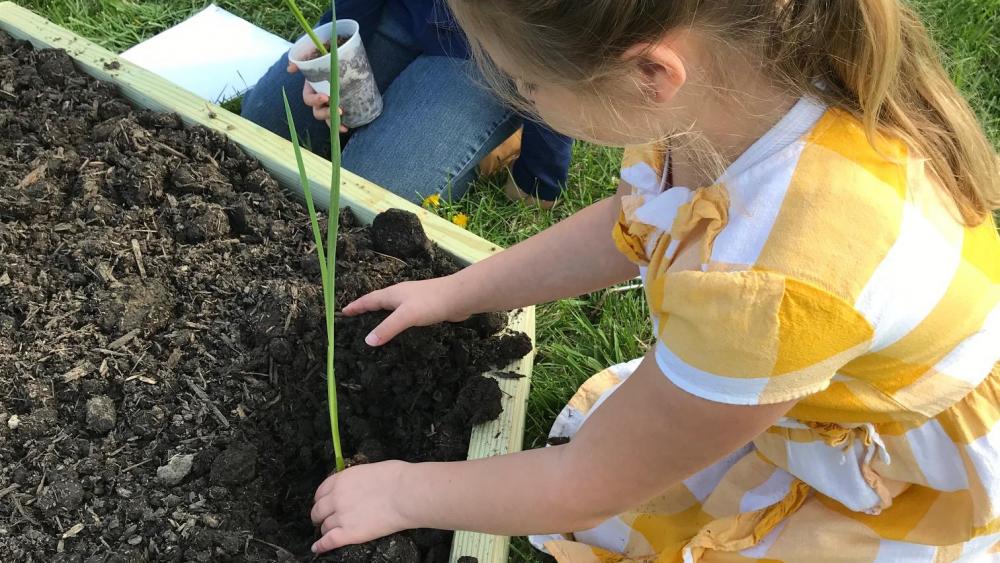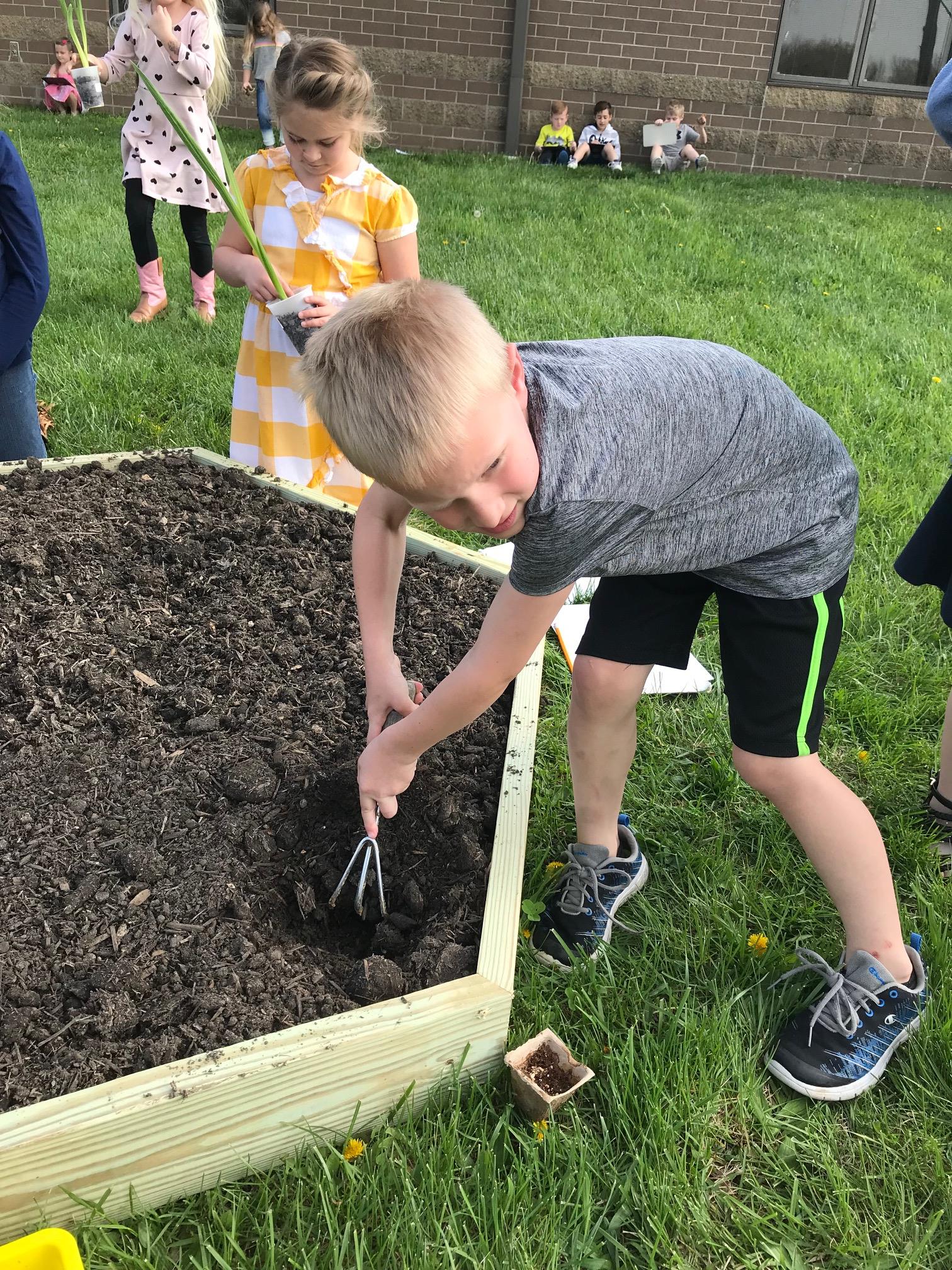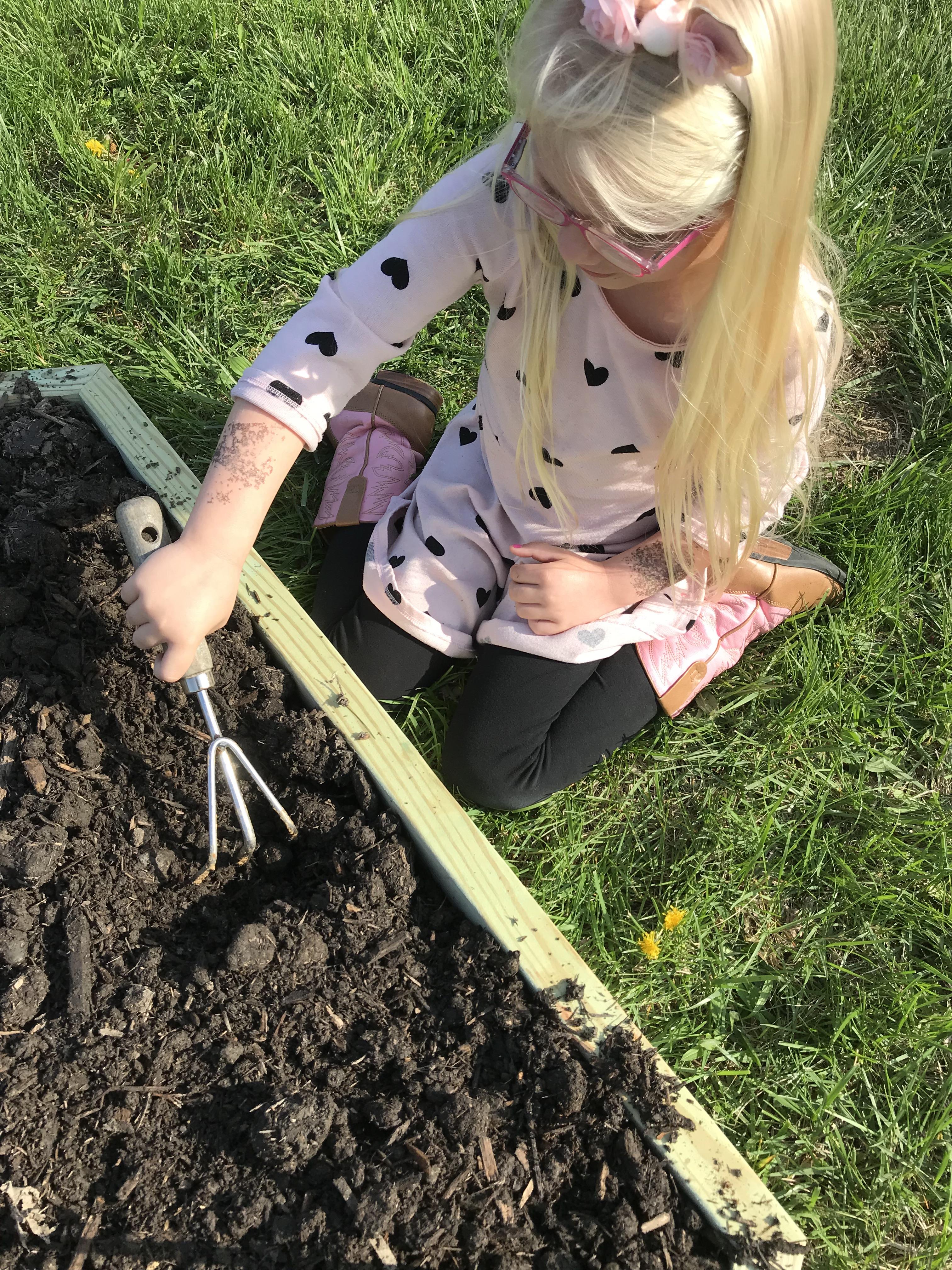Ms. Fisk and Ms. Weismiller are first grade teachers at Manchester Elementary School in Indiana. “I feel that the ultimate goal of teaching is to guide students to become good citizens and compassionate human beings,” said Ms. Fisk. “I care deeply about our world and the animals, so this was my way of getting my students thinking about their impact on the world.”
Just under 40 students participated in the service-learning project Pollinator Garden. After using the Learning to Give lesson Beneficial Bees, students were motivated to take action to support pollinators.
For the service-project, the students created a pollinator garden as a small act to help pollinators like bees. They helped move and spread top soil and planted wildflowers that attract bees and butterflies. The students learned that pollinators play an important role in our lives and, unfortunately, their numbers are declining because of human interference. The two teachers stressed the importance of humans’ responsibility to protect pollinators to prevent further decline in their populations.
Student were given the opportunity to choose a pollinator to research and then they created Google slide presentations they shared with their families.
The Learning to Give mini-grant provided funds for treated boards, top soil, seeds, bulbs, and wildflower seed mix. “There were even enough seeds purchases to expand the garden with next year’s class!” exclaimed Ms. Fisk. Without the mini-grant, the students would not have been able to create the pollinator garden.
“My favorite part was when we were drawing our pollinator garden design. I learned why pollinators are declining. This project makes me want to tell others not to hurt bees or other pollinators,” said Piper.
The educators encouraged continued learning at home by providing the students with seeds to begin their own pollinator gardens, if the family agreed. A signup sheet was made for students and families to check the garden to see if it needs weeding or watering over the summer months.
“My favorite part was when the beekeeper came. I learned the many kinds of bees there are. This project makes me want to tell other people not to hurt bees.” –Jade
“My favorite part was seeing the beekeeper. I learned why pollinators are declining. This project makes me feel like they are special and do not spray pesticides.” –Gabby
“My favorite part was planting the pollinator garden and when the beekeeper came in. I learned to make a bat home. This project makes me don’t use pesticides.” –Chase
After the service experience, “the students are fully aware, that for every human interaction, we have an impact on the plants and animals lives around us. They now show great concern for bees, butterflies, bats, hummingbirds, and ladybugs,” Fisk stated. The pollinator project helped students learn the importance of pollinators and how they, too, have an impact on their survival.


